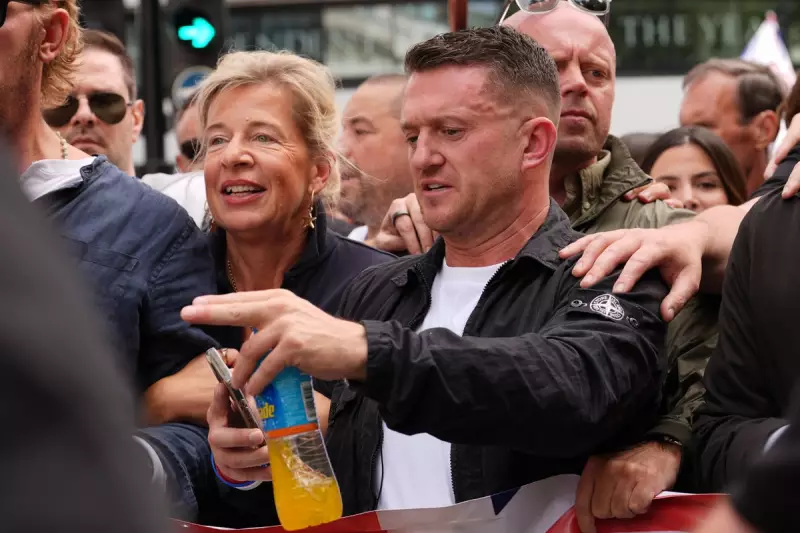
Far-right activist Tommy Robinson, the controversial founder of the English Defence League, has embarked on a clandestine visit to Israel that has ignited political firestorms on both sides of the Mediterranean. The trip, confirmed by multiple sources, included a high-profile meeting with Israeli Diaspora Affairs Minister Amichai Chikli, raising serious questions about diplomatic protocols and political alliances.
Secret Meetings and Political Fallout
According to eyewitness accounts and photographic evidence obtained by The Independent, Robinson was spotted at a central London airport before his departure to Israel. The activist, whose real name is Stephen Yaxley-Lennon, subsequently appeared in social media posts from various locations across the Jewish state, though the exact purpose and funding of his visit remain shrouded in mystery.
The most controversial aspect of Robinson's trip emerged when confirmation surfaced of his meeting with Minister Chikli, a prominent figure in Benjamin Netanyahu's right-wing government. This encounter has drawn sharp criticism from multiple quarters, given Robinson's extensive history of anti-Islam activism and criminal convictions.
Minister's Controversial Defence
When confronted about the meeting, Minister Chikli offered a startling defence of the far-right activist. "I think he's changed his mind about many things," Chikli stated, suggesting Robinson had undergone significant political transformation. The minister further claimed Robinson now recognises "the danger of radical Islam" and understands that "the Western way of life is in danger."
This character assessment stands in stark contrast to Robinson's well-documented history, which includes convictions for violence, fraud, and immigration offences. The activist's political career has been marked by inflammatory rhetoric and leadership of street movements widely condemned as Islamophobic.
Political Reactions and Diplomatic Implications
The meeting has triggered alarm within diplomatic circles and among UK political leaders. Critics argue that providing a platform to a figure like Robinson risks legitimising extremist views and could damage UK-Israel relations. The incident raises fundamental questions about the boundaries of diplomatic engagement and the criteria for official meetings with foreign activists.
Opposition politicians and human rights organisations have expressed deep concern about the normalization of far-right figures in international diplomacy. Many are questioning whether Robinson's visit represents an isolated incident or signals a broader political strategy.
Unanswered Questions and Ongoing Controversy
Several crucial aspects of Robinson's Israel trip remain unclear:
- Who funded and organised the visit?
- What other officials or organisations did Robinson meet with?
- What specific discussions took place during the meeting with Minister Chikli?
- How will this affect UK-Israel diplomatic relations?
The controversy continues to develop as more details emerge about Robinson's activities in Israel and the political ramifications of his engagement with senior government figures. The incident highlights the increasingly complex intersection of domestic extremism and international diplomacy in an increasingly polarised global political landscape.





